Afgelopen zaterdag voegde PETA zich bij de mars ter ere van Wereldproefdierendag, georganiseerd door Animal Rights. Met deze mars wilden we niet alleen solidariteit tonen aan de honderdduizenden dieren die lijden in laboratoria in Nederland en België, maar ook de aandacht vestigen op de voortdurende wreedheid die op grote schaal plaatsvindt in deze laboratoria. De mars stopte voor het Erasmus Medical Center in Rotterdam, dat nog steeds een van de grootste gebruikers van dieren in experimenten in Nederland is.
Uit recent gepubliceerde statistieken blijkt dat er in 2022 in Nederland 492.380 dierproeven zijn uitgevoerd – een beschamende stijging van 3% (wat neer komt op 14.410 dierproeven meer). Onder de dieren die in 2022 in Nederlandse laboratoria leden, waren 134.846 muizen, 112.151 vissen, 90.191 ratten, 58.816 vogels, 17.787 konijnen, 1.008 honden, 141 katten en 182 apen.
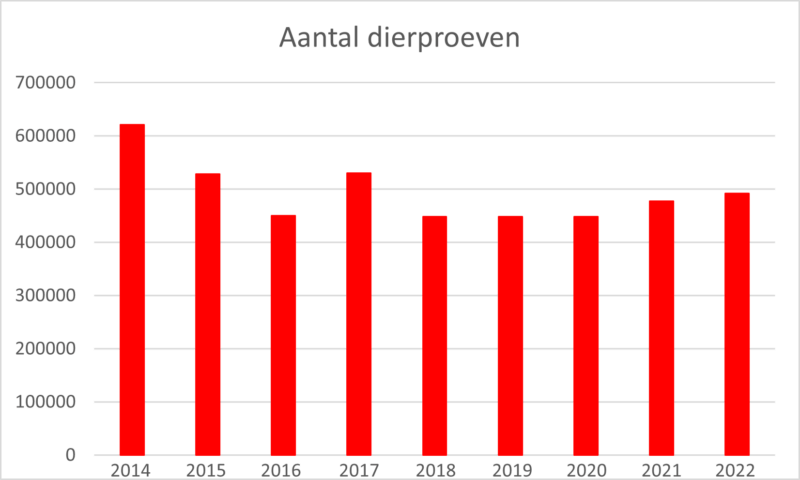
Verbazingwekkend genoeg kwijnden nog eens 341.887 dieren weg in kooien zonder te worden gebruikt voor experimenten voordat ze uiteindelijk stierven of werden gedood, wat ook al een stijging is ten opzichte van 2021.
Dieren lijden onvoorstelbaar
Dieren in laboratoria worden onderworpen aan een catalogus van leed: ze mogen legaal worden vergiftigd; verstoken van voedsel, water of slaap; onderworpen aan stress, hersenbeschadiging, of elektrische schokken; opzettelijk besmet met ziekten; verlamd; blootgesteld aan irriterende stoffen op hun huid of in hun ogen; verbrand; en vergast. Na geleden te hebben in experimenten, wordt de overgrote meerderheid van de dieren gedood. Al deze dieren voelen pijn en angst, net als wij. Hun overweldigende natuurlijke instincten – net als de onze – zijn om vrij te zijn en hun eigen leven te beschermen.

Gebroken beloften
In 2016 beloofde het kabinet om dierproeven uit te faseren en in 2025 koploper te worden in proefdiervrije innovatie. Om dit te bereiken is in 2018 het door de overheid geleide programma Transitie Proefdiervrije Innovatie (TPI) opgezet. Helaas kwam met de start van TPI een wijziging in de ambitieverklaring en werd de deadline van 2025 geschrapt. Daarnaast gaf TPI aan zich te willen richten op het infaseren van proefdiervrije methoden in plaats van op het uitfaseren van dierproeven, wat een totaal andere aanpak vereist. Een exclusieve focus op het infaseren van proefdiervrije methoden brengt het risico met zich mee dat dierproeven naast de proefdiervrije methoden worden uitgevoerd, zelfs inmiddels duidelijk aangetoond overbodige dierproeven, zoals de gedwongen zwemtest, die niet relevant zijn voor de mens. Het is duidelijk dat de beloften van 2016 zijn gebroken.
Politici uit het hele politieke spectrum, de bevolking en wetenschappers willen dat de regering een actieplan ontwikkelt om een einde te maken aan dierproeven met concrete stappen en doelen. In de afgelopen twee jaar heeft de Tweede Kamer kamerbreed een ongelooflijk aantal van twaalf moties aangenomen die opriepen tot actie om een einde te maken aan dierproeven, waaronder de oproep om de vertaalbaarheid van dierproeven naar mensen in kaart te brengen en om per direct een einde te maken aan slecht vertaalbare dierproeven: een no-brainer. De minister heeft echter nagelaten zinvolle acties te ondernemen om aan deze moties tegemoet te komen en het gebruik van dieren te verminderen.
In de woorden van Tweede Kamerlid Joris Thijssen van GroenLinks-PvdA mag het debat over dierproeven niet weer een “Groundhog Day” worden. De regering moet stoppen met het herhalen van hetzelfde oude verhaal en daadwerkelijk beginnen te handelen naar de wensen van het parlement en het publiek om vanaf nu versneld af te stappen van dierproeven.
We hebben nu een uitfaseringsstrategie nodig
We roepen de regering op om PETA’s Research Modernisation Deal te omarmen, een alomvattende strategie om experimenten op dieren te beëindigen en te vervangen door wetenschappelijk geavanceerde proefdiervrije methoden.
Klinische en epidemiologische studies bij mensen, onderzoeksmethoden op basis van menselijke cellen en weefsels, geavanceerde en zeer betrouwbare simulatoren voor menselijke patiënten en computermodellen zijn betrouwbaarder, nauwkeuriger, goedkoper en ethisch verantwoord, en ze kunnen de ontwikkeling van gepersonaliseerde geneeskunde vergemakkelijken, d.w.z. behandelingen die zijn afgestemd op de specifieke ziekte of aandoening die een individuele patiënt ervaart.
Hoe u kunt helpen
Teken alstublieft onze petitie waarin de minister van Landbouw, Natuur en Voedselkwaliteit wordt opgeroepen om de Research Modernisation Deal te omarmen, om nu eindelijk te zorgen voor tegelijkertijd behandelingen die menselijke patiënten nodig hebben en een einde aan dierproeven.
Bron :Melissa van den Aarssen PETA Nederland



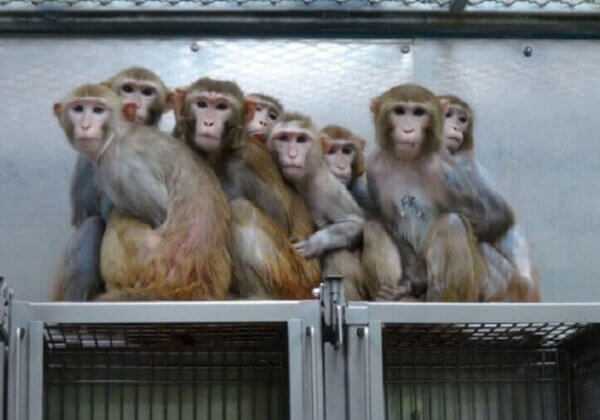
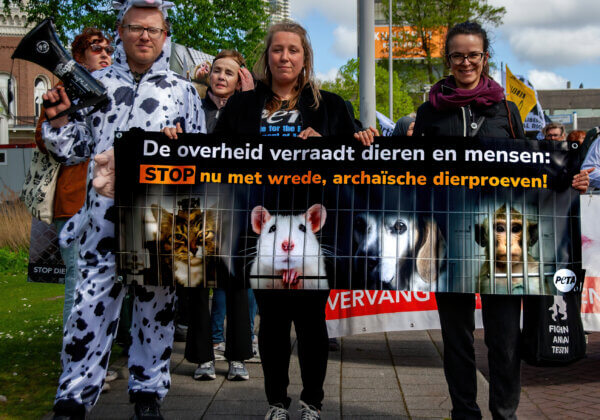
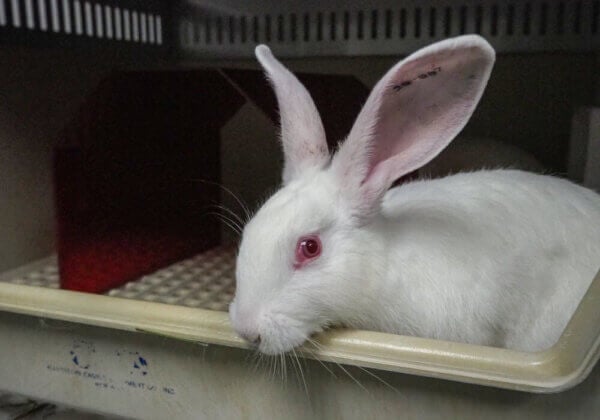
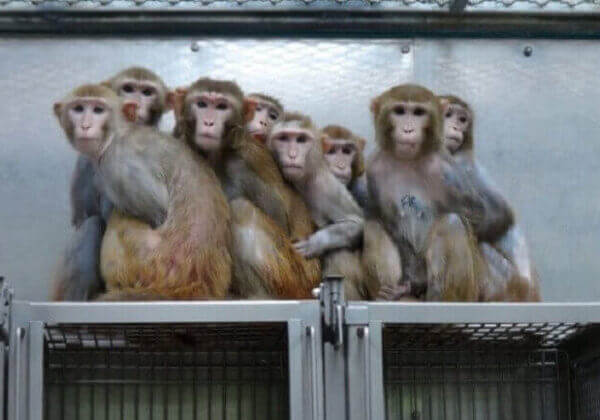
.jpeg)

.jpeg)
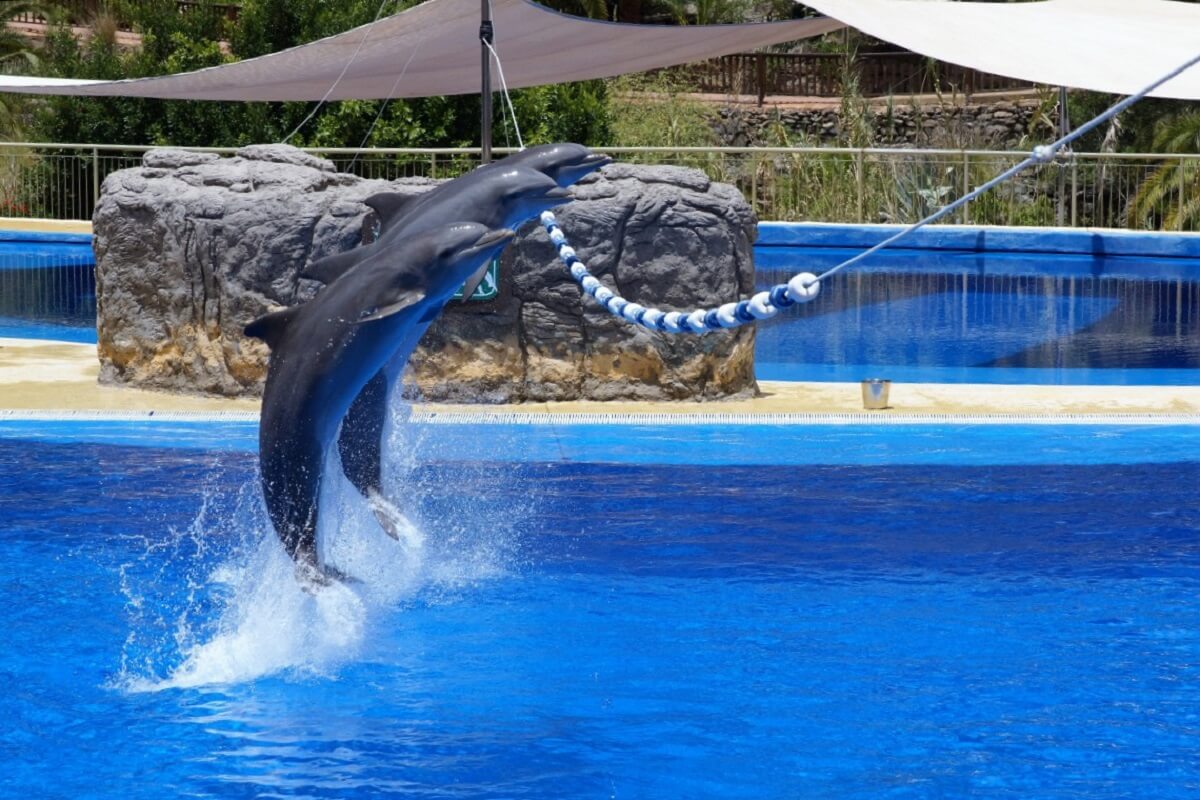
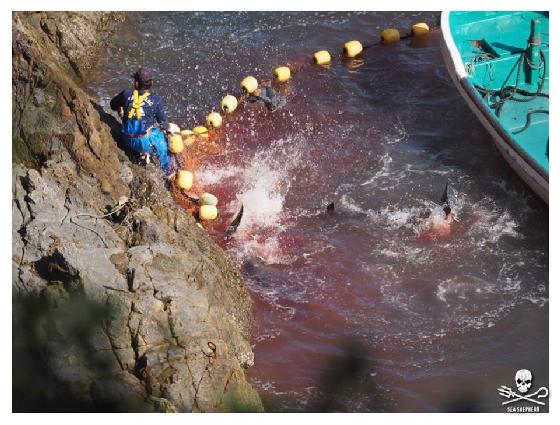


.jpeg)

